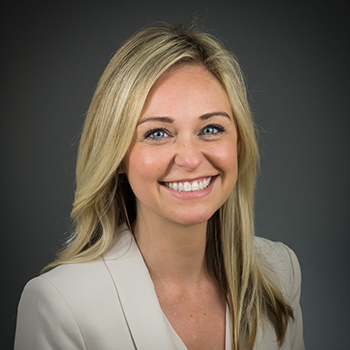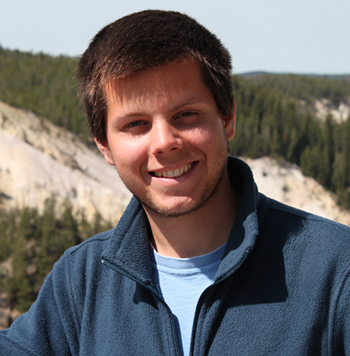NC Sea Grant/NC Space Grant Award First Joint Fellowships
Editor’s Note: This is a guest post by Janna Sasser of the NC Sea Grant program, based at NC State. The original post appeared on the Sea Grant site.
NC State students Lindsey Smart and Seth Theuerkauf are recipients of the first graduate research fellowships offered jointly by North Carolina Sea Grant and North Carolina Space Grant.
The fellowship, inaugurated this year, offers graduate students across the state support for research within North Carolina’s nearshore environs and coastal watersheds. Their research projects will use relevant measurement instruments and/or remote-sensing data sources from the National Aeronautics and Space Administration, National Oceanic and Atmospheric Administration, or other data sources.
“Initiating new funding opportunities for students — and new partnerships — is a highlight for our program. I look forward to the results from both of these new projects,” says John Fear, Sea Grant deputy director.
“This is a great opportunity for both Sea Grant and Space Grant to partner and support student research that addresses missions important to both organizations — and to our sponsors, NASA and NOAA,” adds Chris Brown, director of North Carolina Space Grant, based at North Carolina State University.

Smart is a doctoral candidate in forestry and environmental resources at NC State University’s Center for Geospatial Analytics. She is co-advised by Ross Meentemeyer, the center director, and Jordan Smith, director of the Institute of Outdoor Recreation and Tourism at Utah State University and former NC State professor.
Using the Albemarle-Pamlico Peninsula, Smart will study the connection between vegetation loss as a result of sea-level rise and saltwater intrusion along North Carolina’s coastal plain.
“I plan to explore the potential impacts of human decision-making and adaptation responses in the context of sea-level rise using computational models that explicitly link human behavior and landscape dynamics,” she explains.
She will use computer simulations to explore alternate scenarios of landscape change under different climate adaptation strategies. Smart plans to share her results with stakeholders in hopes of guiding discussions about sustainable solutions that landowners can adopt in the Albemarle-Pamlico region and similar coastal areas.
Smart is a native of Rochester, New York. She holds a master’s degree in both environmental management and geographic information systems from Duke University’s Nicholas School of the Environment. She received her bachelor’s degree in biology from Bucknell University in Pennsylvania. She also served as project manager for the Albemarle-Pamlico National Estuary Partnership before beginning her doctoral work.

Theuerkauf is a doctoral candidate in marine ecology and conservation at NC State’s Center for Marine Sciences and Technology, or CMAST. His advisor is David Eggleston, CMAST director.
“My research will focus on the continued development of a spatial mapping tool to inform where is best to conduct oyster-reef restoration in Pamlico Sound,” Theuerkauf explains.
Using satellite-derived data on chlorophyll a — a proxy for phytoplankton, or “oyster food” — along with water-flow rates and dissolved oxygen levels, he will work to identify potential restoration locations that will maximize the oyster ecosystem service of water filtration.
As a member of Eggleston’s research group, Theuerkauf has collaborated with multiple partners throughout development of the spatial tool to assist with future restoration efforts. Partners include the N.C. Division of Marine Fisheries, the N.C. Coastal Federation and The Nature Conservancy. The tool was built with support from several funding agencies, including Sea Grant.
Originally from Gloucester, Virginia, Theuerkauf earned undergraduate degrees in biology and environmental science and policy from the College of William and Mary. He was an N.C. Coastal Reserve Fellow, awarded by North Carolina Sea Grant and the N.C. Coastal Reserve and National Estuarine Research Reserve Program in 2015 for work on an invasive marsh grass, Phragmites australis. He also is the recipient of a National Defense Science and Engineering Graduate Fellowship by the American Society for Engineering Education.
Learn more about the new North Carolina Sea Grant/North Carolina Space Grant Graduate Research Fellowship, or reach out to the fellows: Lindsey Smart, lssmart@ncsu.edu; Seth Theuerkauf, sjtheuer@ncsu.edu, or follow him on Twitter at @sjtheuer.
This post was originally published in NC State News.